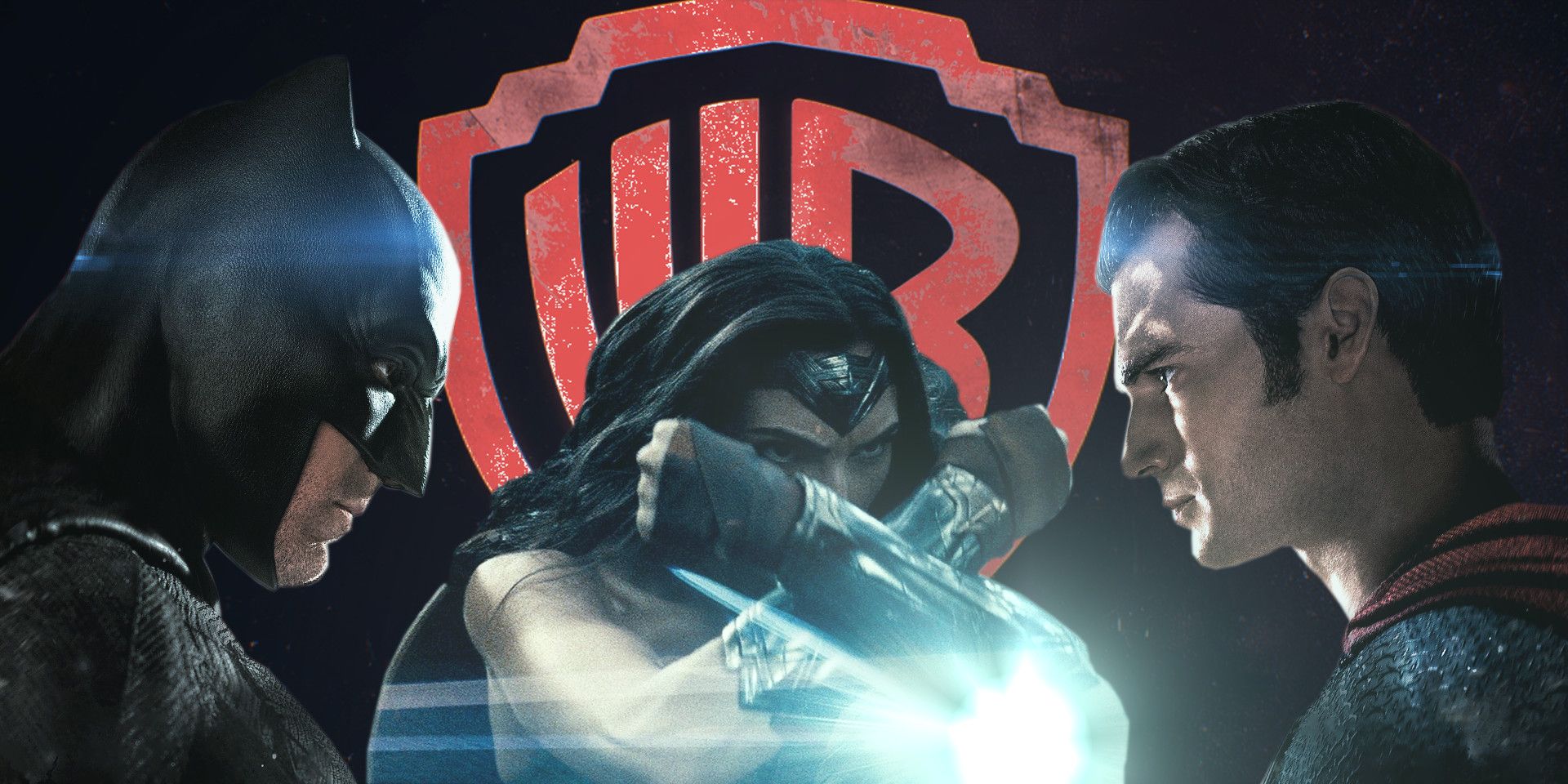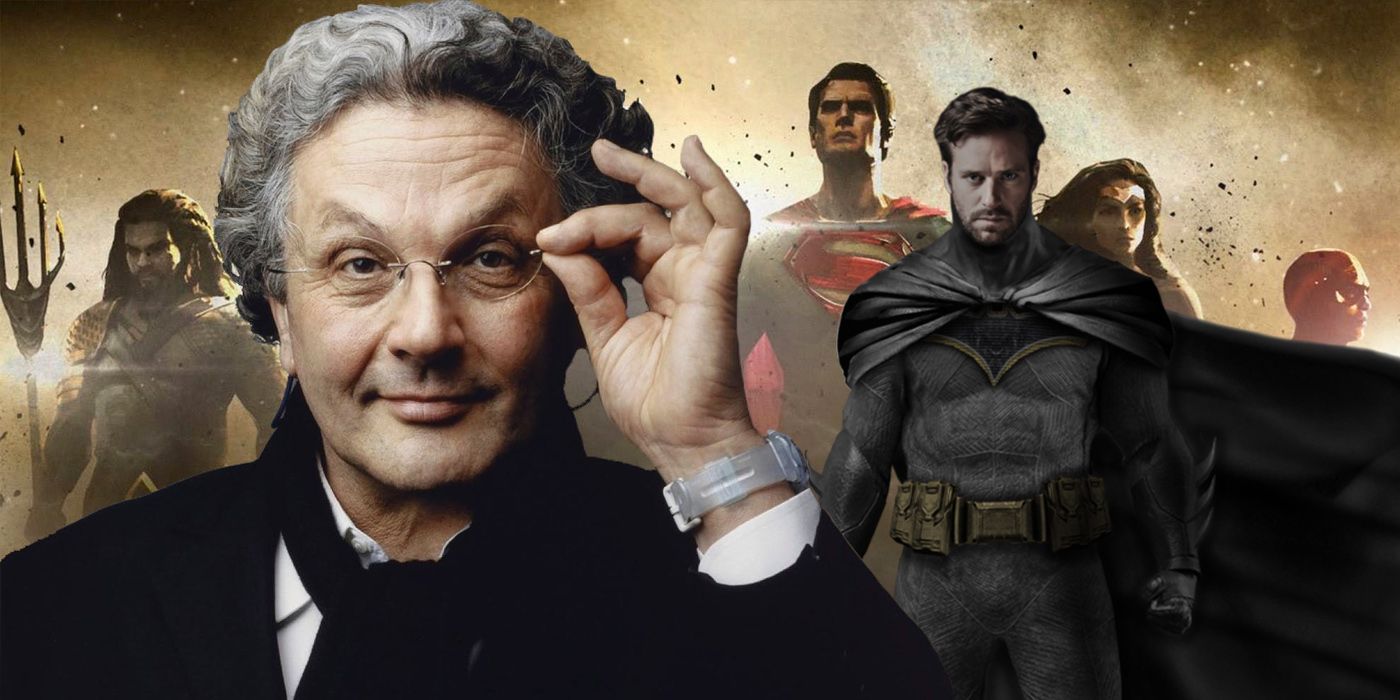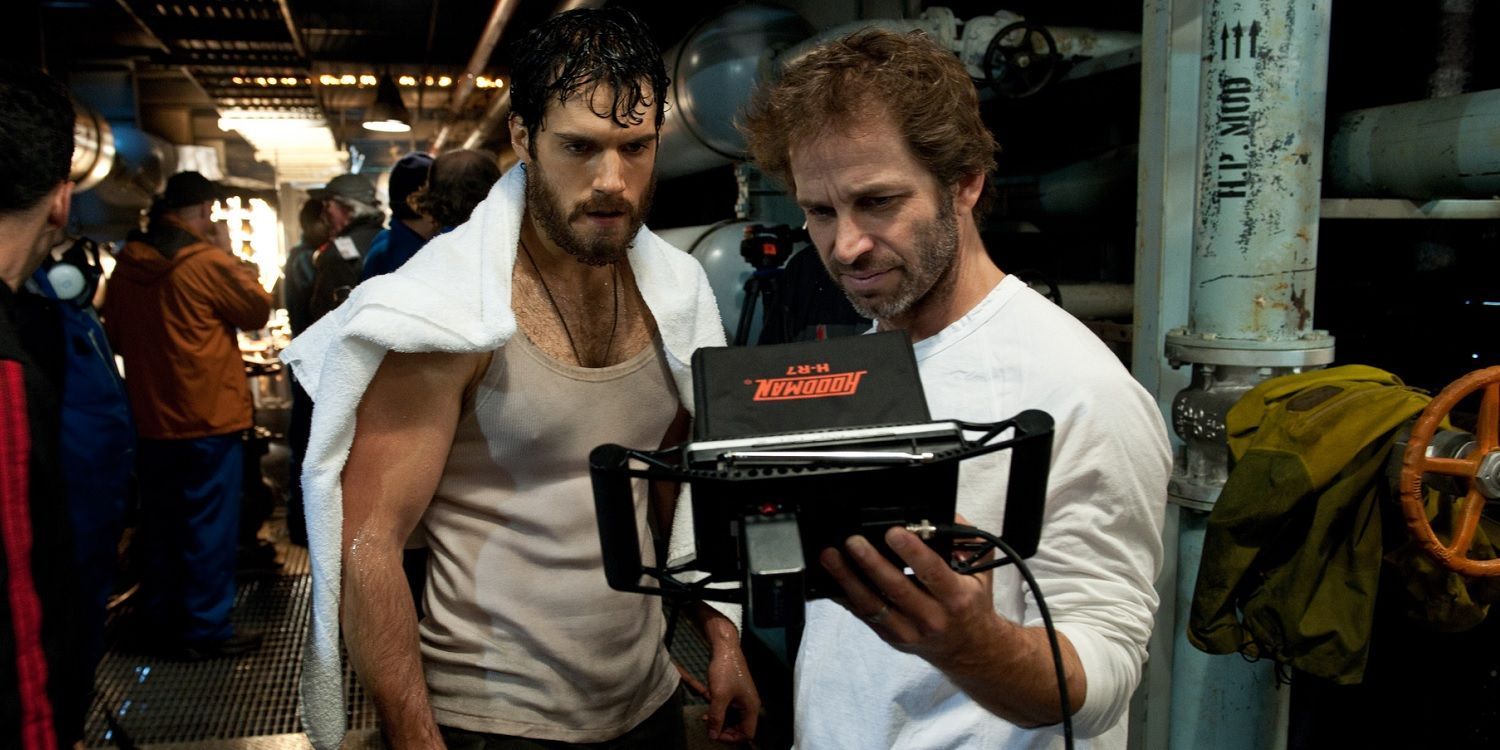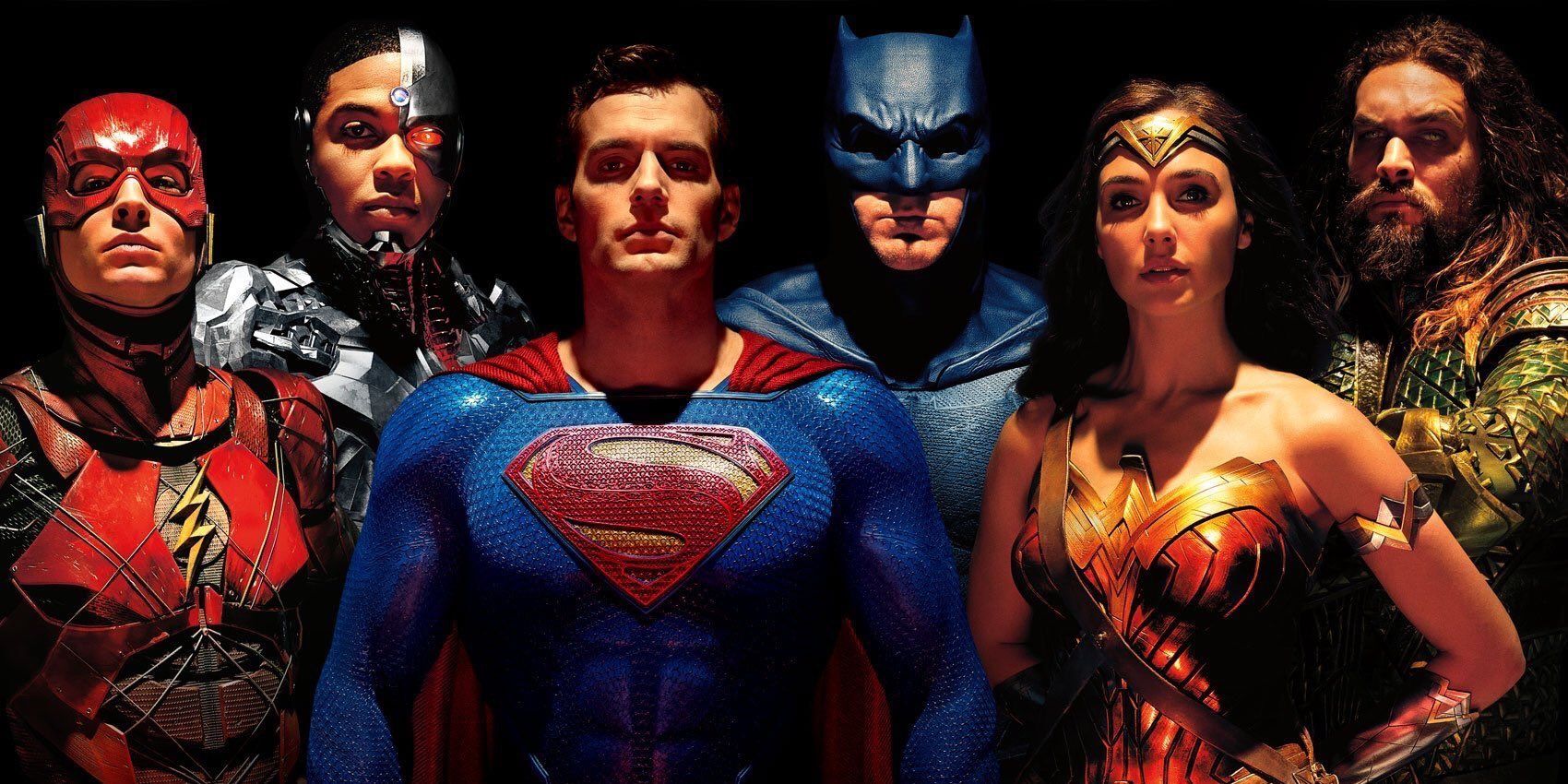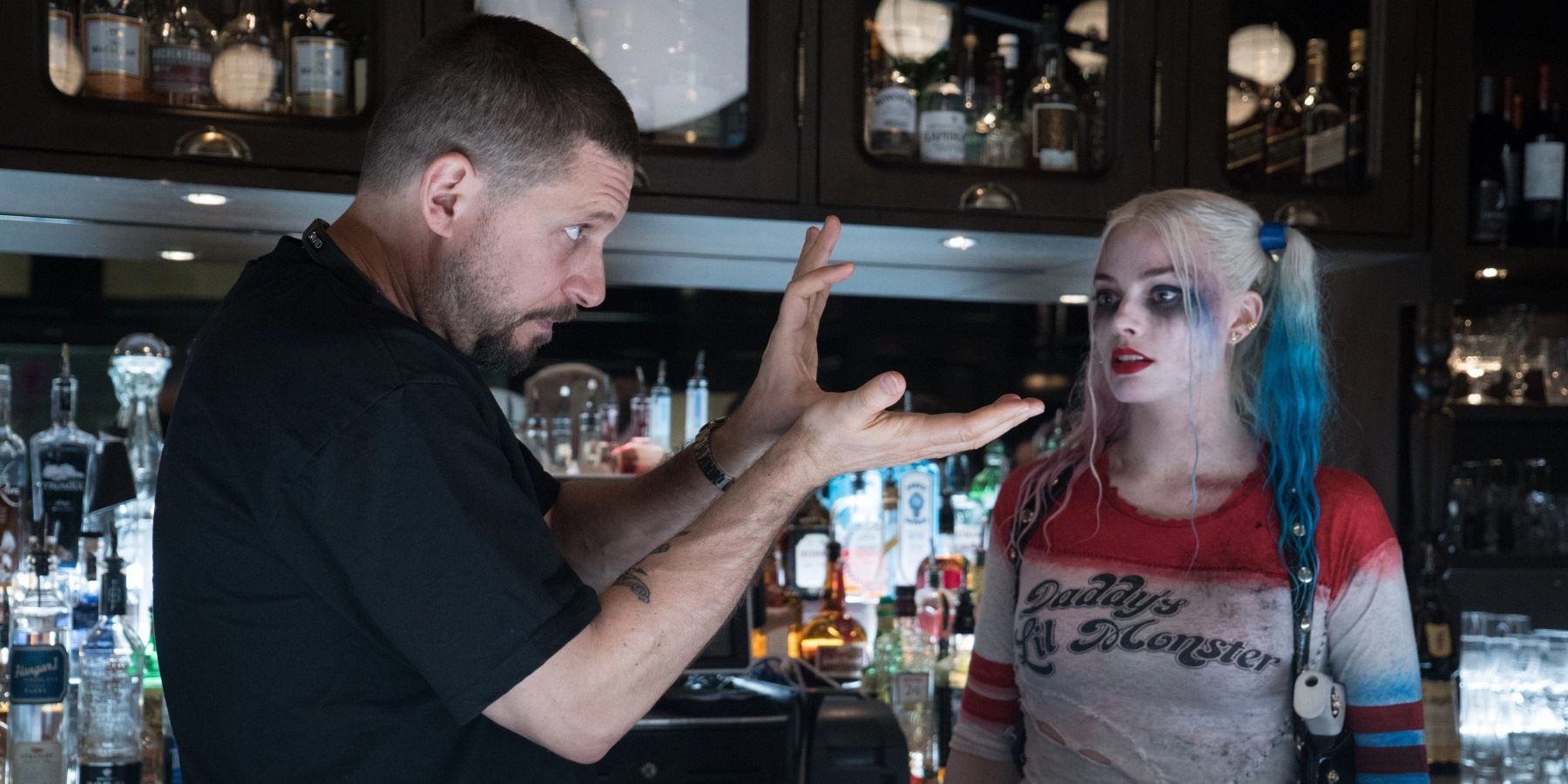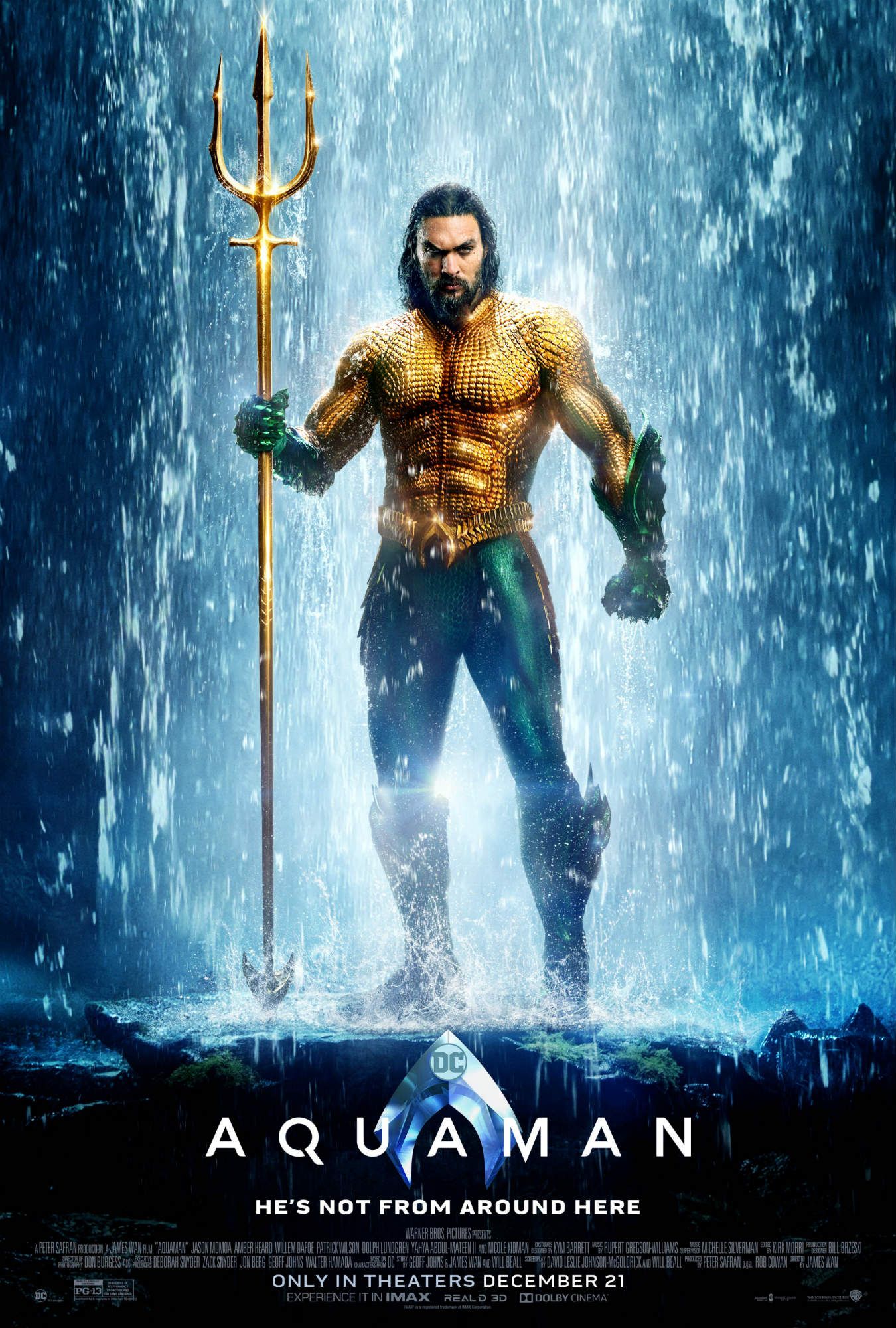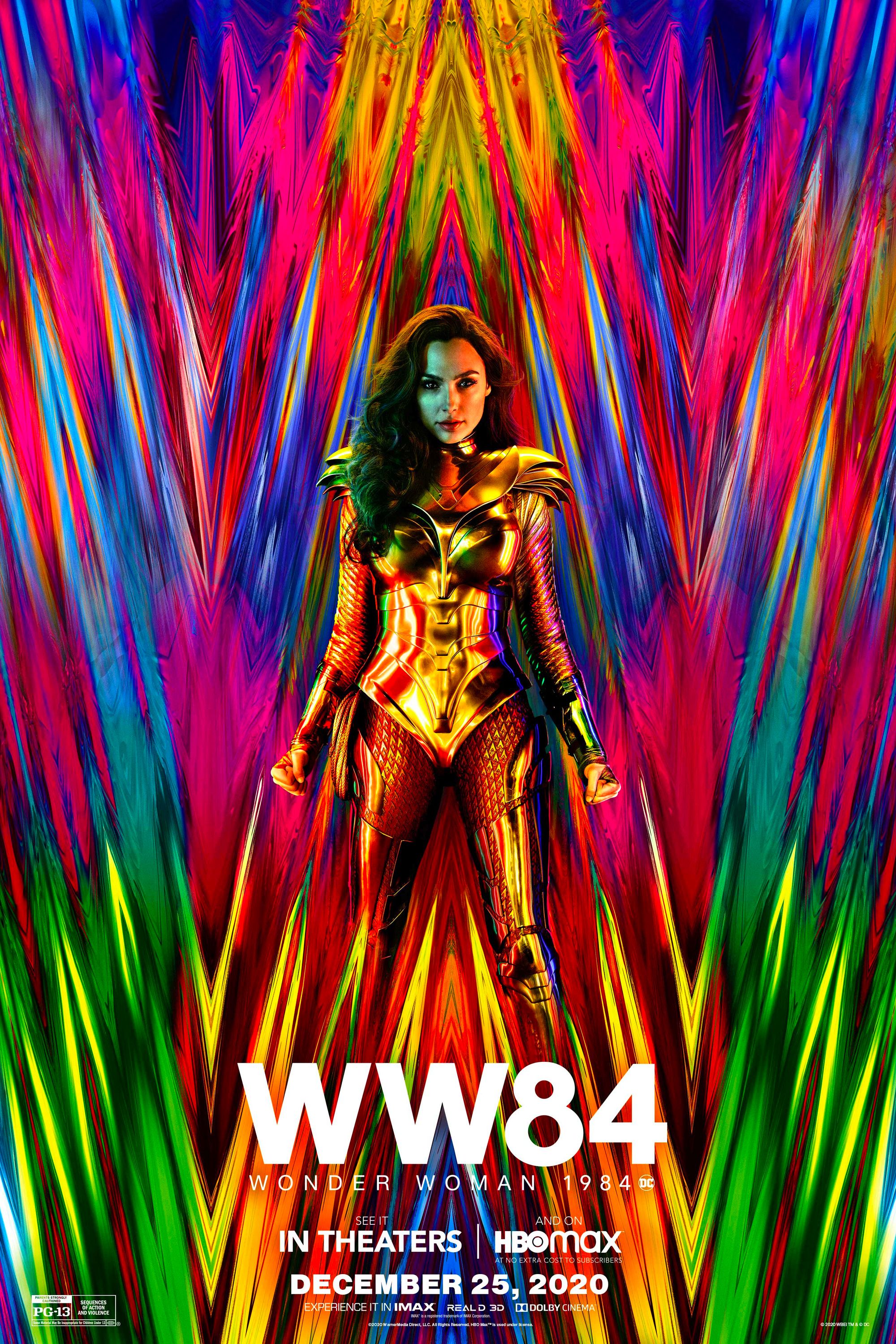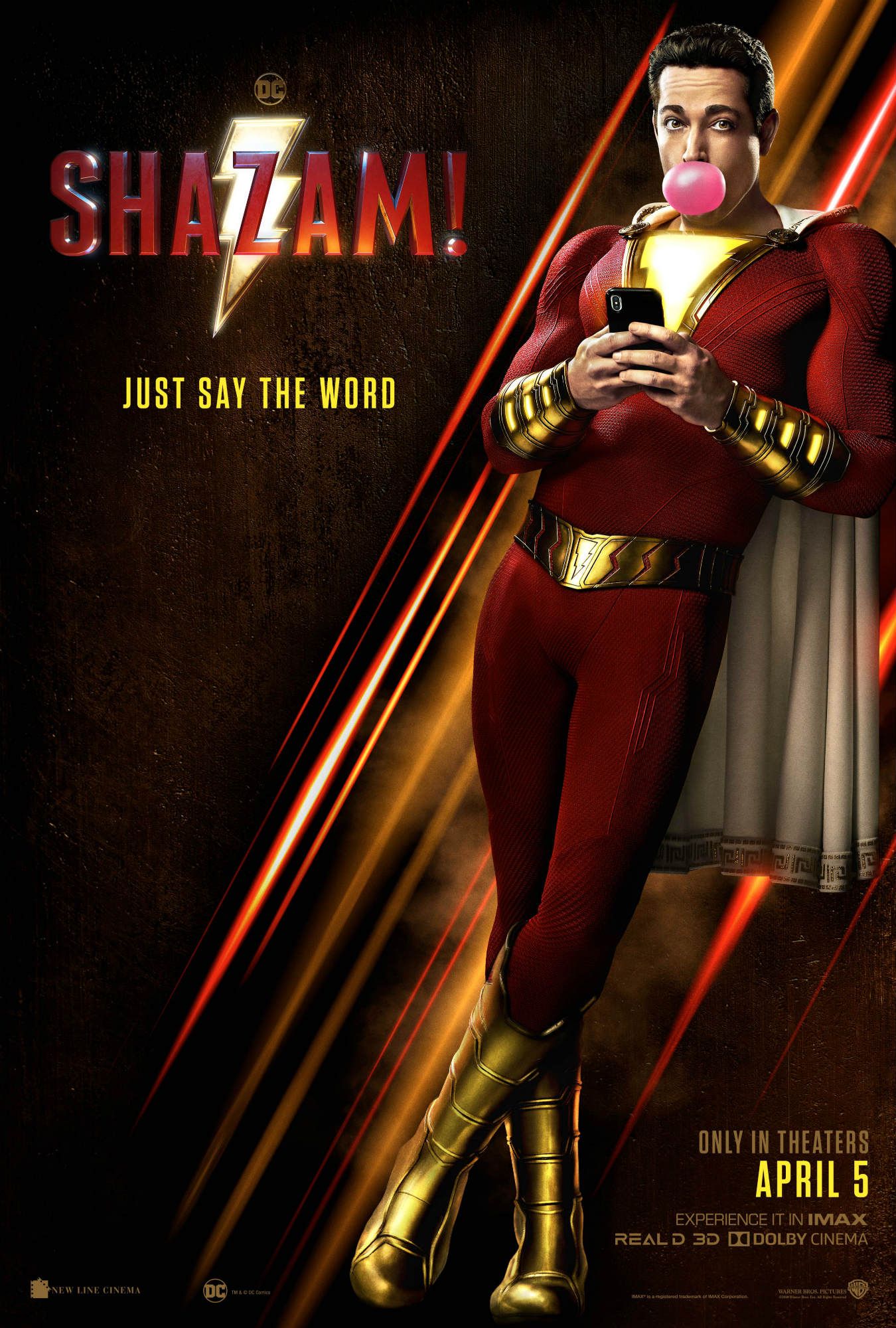Warner Bros.' finally launched their DC Comics-based universe (unofficially titled the DC Extended Universe) with Zack Snyder's Batman V Superman: Dawn of Justice in 2016, a follow-up to the filmmaker's 2013 Superman origin film, Man of Steel. Shortly after the movie released, the studio started to expand and develop their newly-formed shared universe with David Ayer's Suicide Squad in August 2016 and Patty Jenkins' Wonder Woman in June 2017, with the overarching narrative building towards a superhero team-up in Snyder's Justice League in November 2017.Justice League united the world's finest heroes - Batman (Ben Affleck), Wonder Woman (Gal Gadot), The Flash (Ezra Miller), Aquaman (Jason Momoa), and Cyborg (Ray Fisher), who were all later joined by Superman (Henry Cavill) - for the first time on the big screen in an ultimate battle with the villainous New God, Steppenwolf, and his army of Parademons, who came to Earth to reclaim their three lost Mother Boxes and to terraform the planet into New Apokolips. Unfortunately, despite being one of the most highly-anticipated superhero movies ever, a standard plot, poor editing, and disjointed narrative (among other things) contributed to Justice League's critical and commercial failure.Related: Suicide Squad Was Crippled By Its Lack of DevelopmentWarner Bros. rushed Justice League's production and were unwilling to delay the movie so that they could deliver a more cohesive product, which resulted in an unimpressive final cut that contains conflicting tones and undeserved character developments. That's a prime factor in the DCEU's critical failure thus far: pushing out movies too fast and attempting to rework the fundamental nature of certain films during post-production instead of pre-production. This is something that could have been avoided, if Warner Bros. hadn't been rushing to catch up to Marvel Studios' Marvel Cinematic Universe.
WB's History With Batman V Superman & Justice League
Batman V Superman's release undoubtedly dealt a blow to the newly-formed shared universe. While Batman and Superman finally appearing in a movie together for the first time was exciting, to say the least, the film's botched delivery led to a course-correction that arguably only made things worse. The vast majority of people blame director Zack Snyder for Batman V Superman's mistakes, but it wasn't Snyder's idea to throw Batman into the mix after Man of Steel.
Long before Christopher Nolan's Batman Begins came along, Warner Bros. made several attempts to reboot the Caped Crusader on the big screen following Joel Schumacher's much-maligned Batman & Robin. In 2001, they hired Oscar-winning screenwriter Akiva Goldsman to rewrite Andrew Kevin Walker's script for Batman vs. Superman, which saw both Bruce Wayne and Clark Kent in the late stages of their respective crime-fighting careers. Alan Horn, then-president of Warner Bros. (and current chairman of Walt Disney Studios, since 2012), ultimately decided to pass on the project in favor of developing solo Batman and Superman movies, which later became Batman Begins and Superman Returns. But the idea of Batman fighting Superman remained on the backburner for several years.
Related: Justice League Was Not A Box Office Success
Then, shortly after Batman Begins hit theaters in 2005, Warner Bros. started looking into ways to unite the character with other DC superheroes - and so began work on George Miller's unrealized team-up film, Justice League: Mortal. The project remained separate from the studio's solo movies, with different actors playing Batman and Superman (Armie Hammer and D.J. Cotrona, respectively). The idea was to introduce various superheroes and use the film as a launch pad for a DC Comics-based universe (similar to Snyder's Justice League). Unfortunately, numerous production delays and the subsequent success of Nolan's The Dark Knight convinced the studio to put the project on hold and, again, refocus on standalone films. That led to the abominable release of Martin Campbell's Green Lantern in 2011 and, eventually, Man of Steel in 2013.
Zack Snyder's Vision vs. Studio Mandate
In 2008, David S. Goyer and Christopher Nolan began discussing a potential sequel to The Dark Knight. Goyer used that opportunity to pitch his idea for a Superman movie that incorporates present-day themes and deconstructs the character in the same vein as their Batman movies. Nolan liked the idea enough to relay the pitch to Warners' top brass, and that's how they started developing the Superman reboot that would later become Man of Steel. Warner Bros. approached several directors for the project before hiring Snyder in 2010 - one year after Snyder's Watchmen adaptation released. Although Snyder made some alterations to the movie's story, the overarching narrative was already established by Goyer and Nolan before Snyder came on board.
Shortly before Man of Steel hit theaters, the film's creative team began discussing potential follow-ups. Since these discussions took place prior to the movie's release, the team had no idea how successful or receptive their Superman film would be. And while brainstorming the sequel, Snyder said he initially pitched an idea for Batman to show up at the end of Man of Steel 2, with Kryptonite being delivered to Bruce Wayne's house. But when Man of Steel debuted and underperformed at the worldwide box office, the studio decided Superman wasn't the right property to build a shared universe off. They, instead, opted to fall back on Batman - which had just headlined two of the then-three billion-dollar superhero movies ever - by including him sooner than Snyder expected (or wanted). And so, Batman V Superman was born.
To pursue Snyder's Superman sequel first before diving into Batman V Superman and, eventually, Justice League, would mean that the studio would need to wait until possibly 2020 before finally getting the world's finest heroes onto the big screen - and that meant potentially losing out on even more money and time. After all, the studio failed to kickstart a DC film universe with 2011's Green Lantern. They didn't want to lose out on yet another opportunity. So, within mere months of Man of Steel's premiere, plans to develop Batman V Superman and the rest of the colloquially named DCEU began to take shape. Within one year, Warner Bros. had already planned out an entire shared universe - including two Justice League movies - through 2020.
While Snyder undoubtedly influenced various aspects of Man of Steel (and the establishment of the DCEU, such as casting), blaming the filmmaker for all of the film's problems is scapegoating and profoundly inaccurate. In many regards, Man of Steel is as much a product of Snyder's as it is a "Warner Bros. production" and a film from the "director and producers of The Dark Knight Trilogy." Let's not forget that, for what transpired in the months before and after Man of Steel's release set the DCEU down a path that led Warner Bros. to where they are today.
Taking a Shortcut to Justice League
Alan Horn left many projects in development when he resigned at the behest of Time Warner CEO Jeffrey Bewkes (and subsequently replaced with Kevin Tsujihara) in 2011, including Man of Steel. When the studio's new leadership saw the Superman film floundering at the box office, they decided to push the Last Son of Krypton aside and drop Batman into the mix, thus centering an entire shared universe around the Caped Crusader. Remember, The Dark Knight became the first superhero movie ever to cross the billion-dollar threshold, something its sequel, The Dark Knight Rises, also did in 2012. Currently, the only other solo (non-team-up) superhero movie ever to cross that coveted milestone is Shane Black's Iron Man 3, which got a significant boost in ticket sales thanks to being the MCU's first post-Avengers movie.
Instead of Superman forming the Justice League and receiving his deserved trilogy arc, Batman became the centerpiece. And Superman's consequential death and revival were little more than stunts (something they share with the comic book source material). If Superman's story was allowed to progress naturally, perhaps his fight against Doomsday would've come at a later point instead of in his second outing. The thing is, Tsujihara was reportedly angered by Batman V Superman's reaction and, thus, the studio took matters into their own hands, changing everything to fit a specific tone that viewers were being fed through trailers and promos but differentiated from the director's original concept - and that's only one of the many reasons the DCEU is failing.
Batman V Superman and Justice League's critical failures partially stem from the fact that Warner Bros. rushed both films into production without allotting the creative team ample time to get the story and the characters right (at least "right" in Warners' opinion). The basic idea of Batman fighting Superman because he sees the Kryptonian as a potential alien invader isn't far-fetched and actually works narratively, especially within the then-burgeoning DCEU, but casual moviegoers aren't comic book readers and many felt both characters' depictions were unearned.
Warner Bros.' viewpoint on the DCEU can be summed up perfectly by Dr. Ian Malcolm's line from Steven Spielberg's Jurassic Park film, something that was rushed out of naïveté and wasn't earned:
"...it didn't require any discipline to attain it. You read what others had done and you took the next step. You didn't earn the knowledge for yourselves, so you don't take any responsibility for it. You stood on the shoulders of geniuses to accomplish something as fast as you could, and before you even knew what you had, you patented it, and packaged it, and slapped it on a plastic lunchbox, and now you're selling it, you wanna sell it."
The fundamental concept of starting out with team-up movies and branching off into separate storylines isn't flawed, but it does present some issues with regard to convincing general audiences to pay premiums for seeing characters they don't know on-screen for the first time. What's more, execution in strategy is even more important than it would be if a standalone movie were to disappoint; there's more riding on a team-up movie's success than a solo film.
Time & The Suicide Squad Problem
Warner Bros.' initial DCEU plans didn't just revolve around the core superheroes; they wanted an actual, shared universe to mosey through. That meant diving head-first into Suicide Squad, the first major, live-action DC production (except for 2010's Jonah Hex) that doesn't include a mainline superhero. The studio first reveals plans to make a Suicide Squad film in 2009, but they didn't actually announce the movie until October 2014. By that point, Ayer had already signed up to direct Task Force X's first outing, and he was given less than two years to get the film in front of audiences - from scripting to casting to filming, and then through post-production. The same can be said for Justice League, which was already gearing up to start filming when Batman V Superman had just released and, therefore, led to Warner Bros. choosing to "fix" the movie during post-production instead of pre-production.
Considering that Suicide Squad still managed to become an enormous box office success, despite negative reviews and not releasing in China, the studio felt justified in their swift decisions, their multiple edits, and their incessant meddling. Therefore, they're moving forward with several Harley Quinn movies, expanding the Batman Family even more, and putting multiple Batman villain adaptations into development. Again - more Batman, less Superman. What's more, they're going at it without a definitive plan in place, at least beyond 2019.
Marvel Studios president Kevin Feige's recent comments about creating standalone movies first and then connecting them later would be useful in this regard, but it seems that statement directly contradicts Warners' plans (or lack thereof). Moreover, Feige's comments also fall in-line with Christopher Nolan's remarks regarding his Batman trilogy. The acclaimed filmmaker recently provided commentary on Hollywood's obsession with superhero movies, and why he feels his trilogy was the last time someone was given the time and the means to fully flesh out an idea without having to worry about meeting a deadline.
Because Warner Bros. was anxious to have an established shared universe that earns them big bucks, they forwent crucial character and universe development. Instead of taking casual moviegoers (non-comic book readers) on a journey, viewers were told "this-and-this happened," and now "this is happening because of that." As a result, the studio found themselves with muddled theatrical cuts that wouldn't please general audiences. So, things were changed in the 11th hour, and the results were less than satisfactory.
Thus far, the only movie that's gone through production without a hitch is Wonder Woman. That movie released to overwhelming praise and went on to break numerous box office records. If more DC films were given the time to develop naturally, particularly without strong studio interference, perhaps the DCEU would be better off. Since James Wan's Aquaman and David F. Sandberg's Shazam! both seem to be progressing smoothly, perhaps it will all work out in the end - but we'll just have to wait and see. What's clear, though, is that establishing the DCEU was a sprint from the start when it really should've been a marathon.
More: Every DCEU Film in Development That's NOT on WB's Slate

